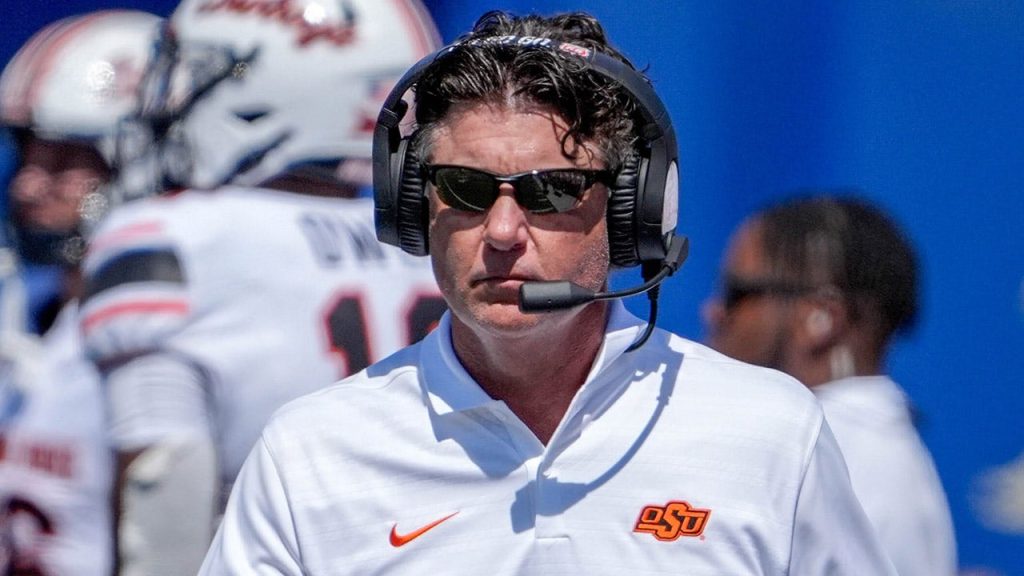The transfer portal and name, image, and likeness (NIL) have had a significant impact on college sports in recent years. The NCAA adopted the NIL policy in 2021, leading to college football programs having to come up with new strategies to minimize roster turnover. This has become a challenge for coaches who were previously focused on recruiting players and expecting them to stick around for multiple seasons. Oklahoma State head coach Mike Gundy expressed his concerns about the impact of NIL on the sport, stating that player retention is now primarily based on money, rather than other factors. Gundy emphasized that negotiations over NIL should be reserved for after the season, with the focus during the season being on coaching and playing football.
Gundy’s stance on NIL and the transfer portal reflects his commitment to prioritizing coaching and playing football over monetary negotiations. He emphasized that once the season starts, negotiations are off the table, and players should be focused on their performance on the field. While these policies have brought benefits to the players, they have also introduced challenges for coaches like Gundy, who must adapt to the changing landscape of college sports. The impact of NIL and the transfer portal can be seen in Oklahoma State’s current 3-4 record, highlighting the complexities that come with these new policies.
The unintended consequences of the transfer portal and NIL policies have forced coaches to rethink their approach to player retention. Gundy’s comments shed light on the changing dynamics of college football, where monetary considerations now play a significant role in players’ decisions on where to play. Coaches must now navigate this new reality, balancing the need to retain players with the limitations of their budgets and resources. While the policies have brought benefits for the players, they have also presented challenges for coaches like Gundy, who are trying to find ways to adapt and succeed in this new environment.
Gundy’s perspective on the impact of NIL and the transfer portal on college sports provides insight into the challenges faced by coaches in the current landscape. As the head coach of Oklahoma State since 2005, Gundy has seen firsthand how these policies have changed the recruiting and retention process for college athletes. He remains committed to focusing on coaching and playing football during the season, while acknowledging the importance of NIL negotiations for players after the season. Gundy’s approach highlights the need for coaches to adapt to the changing dynamics of college sports, while still prioritizing the development and success of their players on and off the field.
In conclusion, the impact of the transfer portal and name, image, and likeness policies on college sports continues to be a topic of discussion and debate among coaches, players, and fans. While these policies have brought benefits for the players, they have also presented challenges for coaches like Mike Gundy, who must navigate the changing landscape of college football. Gundy’s perspective on the impact of NIL and the transfer portal sheds light on the complexities and opportunities that come with these policies, both for players and coaches. As college sports continue to evolve, coaches like Gundy will need to find innovative ways to adapt and succeed in this new era of college athletics.


